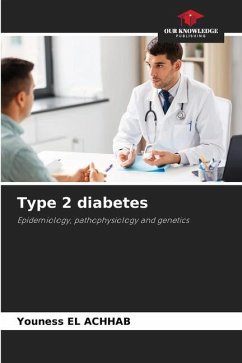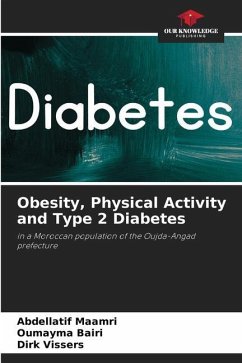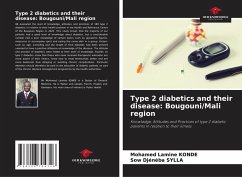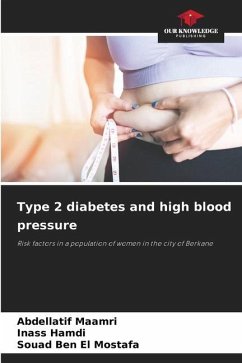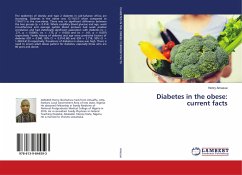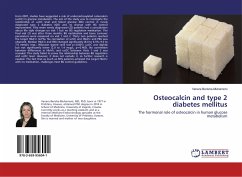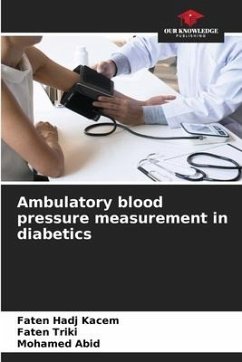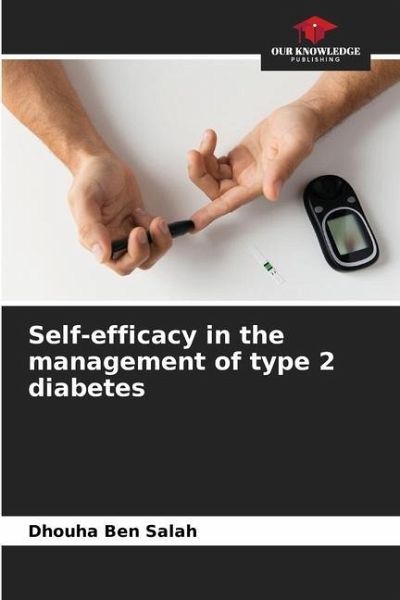
Self-efficacy in the management of type 2 diabetes
Versandkostenfrei!
Versandfertig in 6-10 Tagen
29,99 €
inkl. MwSt.

PAYBACK Punkte
15 °P sammeln!
Type 2 diabetes is a chronic pathology that has serious repercussions on current and future health states. Thus, the level of self-efficacy of type 2 diabetics with respect to their management is now recognized as a relevant subjective criterion. The aim of this descriptive study is to evaluate the level of self-efficacy in the management of type 2 diabetics using the DMES questionnaire. At the end of this study, it was found that the total mean of the DMSES in our population was 123.58/200 indicating an acceptable level of self-efficacy. Indeed, the means of the sub-scores of the dimensions w...
Type 2 diabetes is a chronic pathology that has serious repercussions on current and future health states. Thus, the level of self-efficacy of type 2 diabetics with respect to their management is now recognized as a relevant subjective criterion. The aim of this descriptive study is to evaluate the level of self-efficacy in the management of type 2 diabetics using the DMES questionnaire. At the end of this study, it was found that the total mean of the DMSES in our population was 123.58/200 indicating an acceptable level of self-efficacy. Indeed, the means of the sub-scores of the dimensions were as follows: Several factors may influence the level of self-efficacy in type 2 diabetic patients such as age, occupation, education level, socioeconomic level, diabetic diet and self-monitoring of blood glucose. Based on this study, it was found to be important to develop health education programs that address misconceptions and consider improving self-efficacy in diabetes management.



